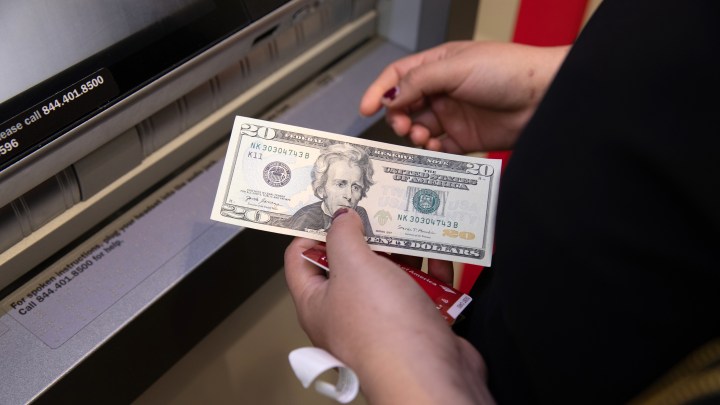
More companies are starting emergency savings programs for employees
More companies are starting emergency savings programs for employees

Saving is hard — in regular times and especially in pandemic times. The latest results from the Marketplace-Edison Research Poll show that right now, 47% of Americans would have at least some trouble handling an unexpected $250 expense.
Employers are starting to take action by setting up programs to help employees save for the short term within their 401(k)s or other accounts.
That could help jumpstart the task of putting money away, which can be intimidating. “And I think at that point people just fizzle out and say, you know what, I don’t feel like taking too much of my time, effort and energy to figure this out,” said Zach Ciampa, a financial planner at John Hancock.
A push from an employer that makes savings easy and automatic could also go a long way to help people commit to saving. And there are good reasons to have a savings pot that’s not linked to your bank accounts.
“If it’s a bit more out of sight because it’s not the place you go to on a daily basis. Maybe if it requires a little bit more work to withdraw, you’re more likely to leave it in there,” said Dean Karlan, a professor of economics and finance at Northwestern University’s Kellogg School of Management. “And that is a nice behavior trick to try to help people accumulate savings.”
Some company-sponsored savings programs come with a bonus for opening an account. A new program at UPS is tied to employees’ 401(k)s. Unlike regular 401(k)s, the emergency savings contributions are not pre-tax, though there are no fees for pulling invested money out. Employees do have to keep tabs on how their investments are doing, unlike a bank savings account that builds tiny bits of interest.
But there’s little data on whether these account help build up significant savings. “There has been a small trickle of companies that have been trying this out,” said James Choi, a professor of finance at the Yale School of Management. “But this is still pretty experimental.”
Choi thinks employers may be willing to offer them if there’s a chance they’ll reduce employees’ financial stress. “That’s going to affect their productivity at the workplace. And so there’s a hope that this sort of program might even pay for itself,” he said.
Of course, that only works if employees have extra money to squirrel away.
There’s a lot happening in the world. Through it all, Marketplace is here for you.
You rely on Marketplace to break down the world’s events and tell you how it affects you in a fact-based, approachable way. We rely on your financial support to keep making that possible.
Your donation today powers the independent journalism that you rely on. For just $5/month, you can help sustain Marketplace so we can keep reporting on the things that matter to you.

















